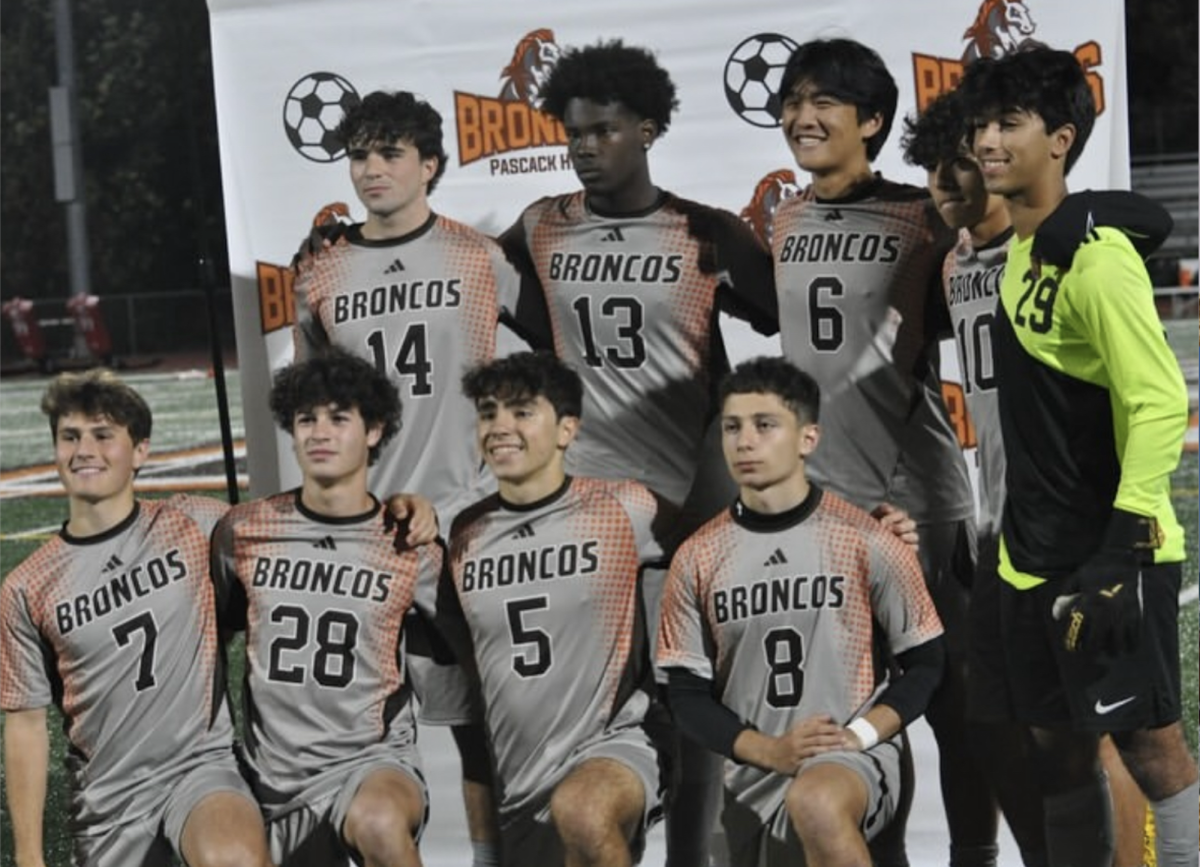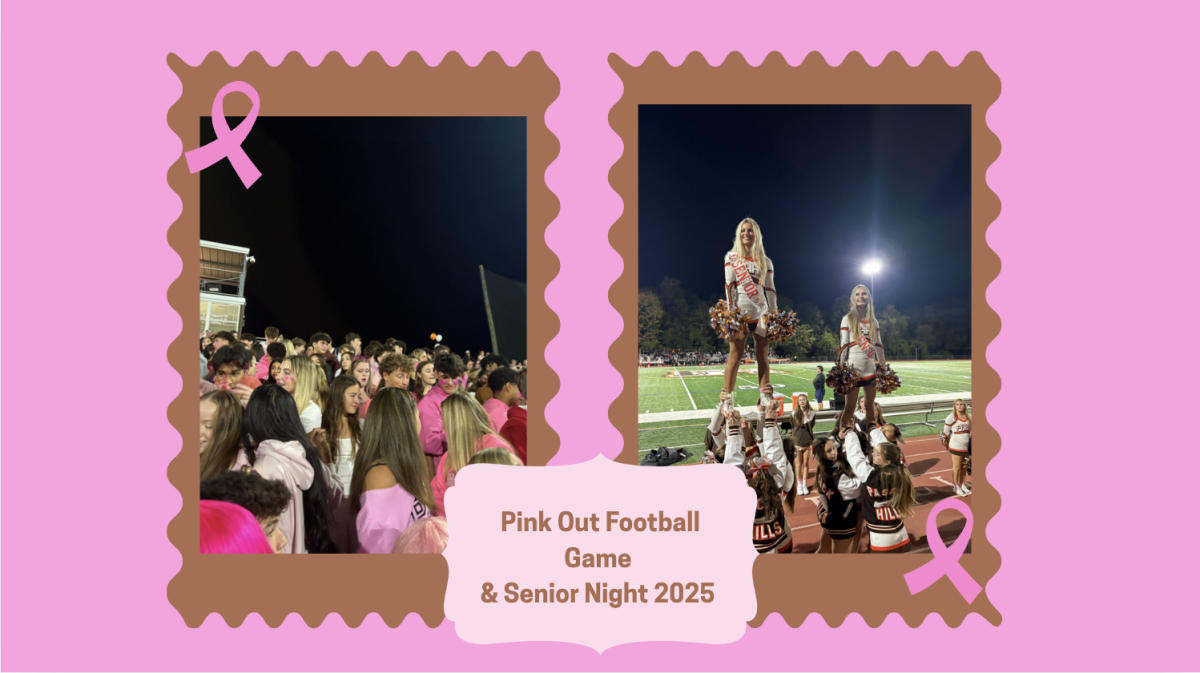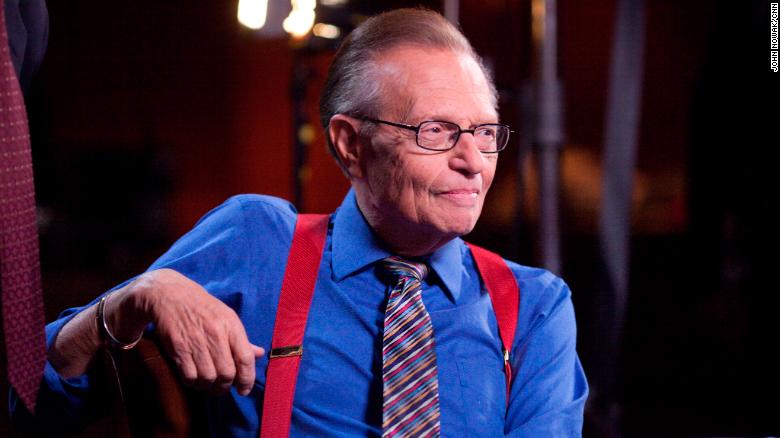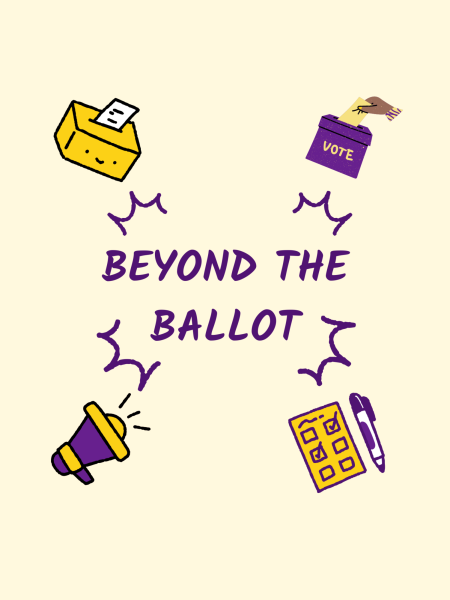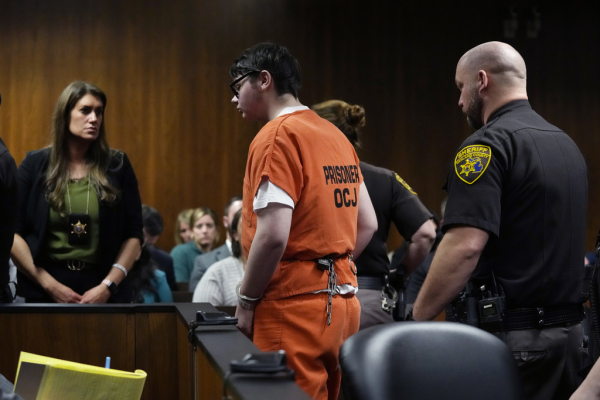Over 50,000 interviews: Larry King and his legacy
“[H]e was really observant of the world around him and valued what others had to say,” said Hills sophomore Hannah Baskin.
John Nowak for CNN
Larry King, a self-described “infotainer,” on the set of his CNN TV show “Larry King Live” in 2010.
On Jan. 23, talk show host Lawrence Harvey Zeiger, more commonly known as Larry King, passed away at age 87.
Originally from Brooklyn, N.Y., King aspired to have a career in broadcast journalism since around age ten. After his father’s death during World War II, he turned to the radio as a way to cope.
King secured his first job related to broadcast journalism in 1957 in Miami. He was a disc jockey for WAHR-AM from 9 a.m. until noon. At this job, his boss ordered him to change his surname due to it being too “ethnic,” and changed it to King after a liquor advertisement nearby.
In 1958, King joined WKAT and interviewed people at a Miami Beach restaurant, Pumpernik’s. The show not only helped breakfast trade grow, but it made King realize that doing interviews without knowing who was being interviewed or the topic of it was a strong suit for him.
Staying in the Miami area, King did interviews as a commentator for the Miami Dolphins during the early 1960s, which led to encounters with Ella Fitzgerald and Frank Sinatra.
After facing years of excessive spending and debt, King grounded himself and accepted a few more radio host jobs. Later, he would start his talk show on CNN, “Larry King Live.”
Between the premiere of his late-night show and its finale in 2010, King completed over 50,000 interviews. Among these interviews, he hosted several celebrities, world-class athletes, psychics, authors, and all of the U.S. presidents from Gerald Ford to Barack Obama.
His show was well-known for his approach, which was casual and personable. King never prepared interview questions in advance for his guest; they were made on the spot. It is said that he treated all of his guests the same, no matter how well-known they were.
However, this approach received criticism, specifically for asking questions that were too soft, and not asking politicians “tough” follow-up questions.
In response to this, King claimed that he was an “infotainer” –– a combination of information and entertainer –– not a journalist.
An example of one of his “simple” questions can be seen in an interview with former President Ronald Reagan. King asked him, “Is it, for you, frustrating to not remember something?”
The infotainer worked at CNN for 25 years, but also achieved many other accomplishments. Throughout his career, he won ten Cable ACE awards, an Emmy, and two Peabodys. He also wrote an autobiography in 2009.
One aspect of his career that King kept in mind was that he “never learned anything while [he] was talking.” Hills students commented on this quote.
Sophomore Trayee Jha explained that “to me, this quote means that you need an open mind and curious nature to learn and grow as a person.”
Hannah Baskin, also a sophomore, commented, “[it] tells me that he was really observant of the world around him and valued what others had to say, which are very good qualities to have.”
Before his passing, King had several health problems, such as chest pains and a stroke. He was hospitalized for Covid-19 in December and received care at Cedars-Sinai Medical Center in Los Angeles. The cause of his death was not specified to the public.
No matter which job King took on, he explained that “I just love what I do… I love asking questions; I love doing the interviews.”

Briana Keenan is a senior at Hills. She joined the Trailblazer her freshman year as a staff writer and edited for the In-Depth and School News sections her sophomore and junior years, respectively. This year, Keenan is looking forward to being the publication's Editor-in-Chief and continuing to write, edit, and manage stories for the Hills community.
Fun fact: Over the summer, Keenan went to the School of the New York Times for two weeks.












